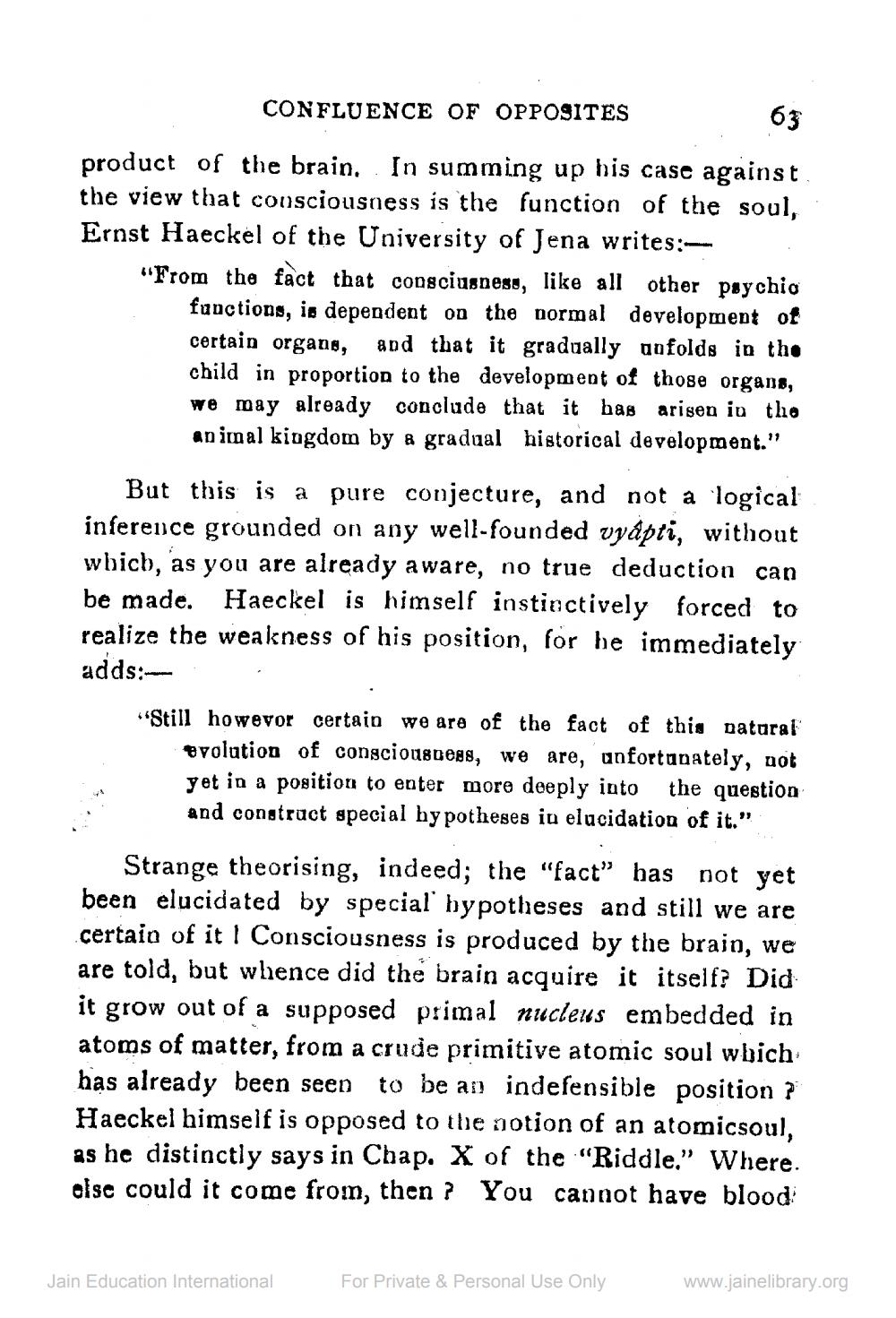________________
CONFLUENCE OF OPPOSITES
63
product of the brain. In summing up his case against the view that consciousness is the function of the soul, Ernst Haeckel of the University of Jena writes: "From the fact that consciusness, like all other paychio
functions, is dependent on the normal development of certain organs, and that it gradually gofolds in the child in proportion to the development of those organs, we may already conclude that it has arisen in the animal kingdom by a gradual historical development."
But this is a pure conjecture, and not a logical inference grounded on any well-founded vyápti, without which, as you are already aware, no true deduction can be made. Haeckel is himself instinctively forced to realize the weakness of his position, for he immediately adds:"Still howevor certain we are of the fact of this natural
evolution of consciousness, we are, unfortunately, not yet in a position to enter more deeply into the question and construct special hypotheses iu elucidation of it."
Strange theorising, indeed; the "fact" has not yet been elucidated by special hypotheses and still we are certain of it I Consciousness is produced by the brain, we are told, but whence did the brain acquire it itself? Did: it grow out of a supposed primal nucleus embedded in atoms of matter, from a crude primitive atomic soul which has already been seen to be an indefensible position ? Haeckel himself is opposed to the notion of an atomicsoul, as he distinctly says in Chap. X of the "Riddle.” Where. olse could it come from, then? You cannot have blood
Jain Education International
For Private & Personal Use Only
www.jainelibrary.org




